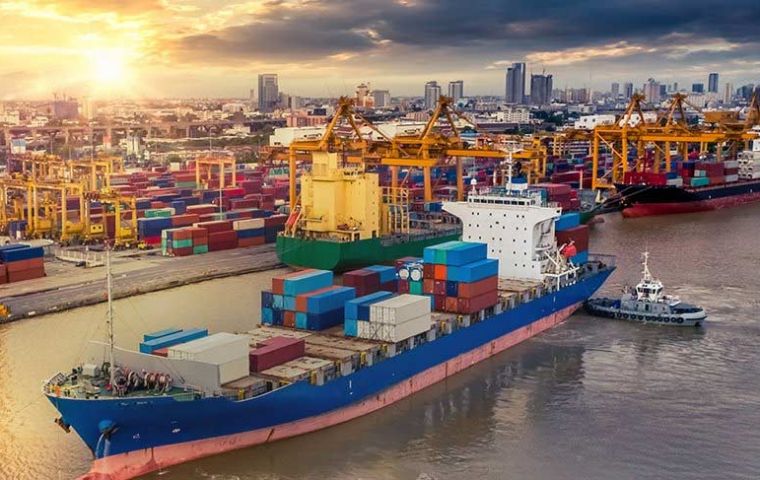MercoPress. South Atlantic News Agency
Brazil assessing risks and reactions from a sustained slowdown of China's economy
 In January/July, Brazilian exports to China surged by 6.9%, driven by shipment quantities, amounting to US$ 58.7 billion. The global average was a mere 0.2%.
In January/July, Brazilian exports to China surged by 6.9%, driven by shipment quantities, amounting to US$ 58.7 billion. The global average was a mere 0.2%. The slowdown of the Chinese economy, where Brazil shipped 30% of its exports in the first seven months of the year are underscoring the nation’s substantial vulnerability to the fluctuations in the Asian giant, and President Lula da Silva electoral promises of a quick recovery to his followers.
Deteriorating conditions in the world’s second-largest economy started with a shift in expectations regarding growth, following the cessation of the zero-covid policy due to concerns about a pronounced slowdown. Retail sales, industrial production, and fixed asset investment all experienced slower growth rates in July compared to the prior month. Youth unemployment reached a record high of 21.3%, with prices of numerous products declining and thus entering deflationary territory—a sign of reduced commercial activity.
Exports have faced a third consecutive month of decline (-14.5% in July alone), while imports have decreased for the fifth consecutive month, backing up further economic slowdown prospects. Moreover, bankruptcies within the massive real estate sector, which typically drives a quarter of China's economic activity, raise worries about the potential contagion spreading to the financial sector.
Despite the economic crisis, the Brazilian government envisions that exports will remain substantial for its leading trading partner.
Tatiana Prazeres, the Secretary of Foreign Trade at the Ministry of Development, Industry, Commerce and Services, emphasizes two key points. Firstly, the deceleration in China’s growth rate warrants Brazil’s attention, given that the Chinese market accounts for nearly one-third of the country’s exports.
Secondly, “there is a risk of these grim analyses being overstated in the news. We’re discussing a slowdown in the world’s second-largest economy, but it’s a slowdown to 5%. China is still driving global growth.” In essence, a 5% growth rate in China is “highly significant and positive” for Brazil.
Between January and July, Brazilian exports to China surged by 6.9%, driven by shipment quantities, amounting to US$ 58.7 billion. By comparison, global average export growth during the same period was a mere 0.2%.
Prospects for the second half of the year vary depending on commodities destined for the Chinese market. Consumer income in China is not growing as fast as it has been, and demand is shifting.
The outlook is more favorable for food commodities such as corn, poultry, pork, and cellulose.
Exports of commodities like iron ore and oil might encounter challenges. However, the Mdic’s Foreign Trade Secretary estimates that Brazilian iron ore exports will remain robust in terms of quantity due to its quality (iron content) relative to competitors.
Given this scenario, the Brazilian government foresees the possibility of closing the year with US$ 90 billion worth of exports to China, constituting 27% of total exports amounting to US$ 330 billion (US$ 335 billion in 2022). Consequently, the sales projection for the Chinese market aligns with last year’s figures.
Tatiana Prazeres emphasizes, “This is an impressive outcome, particularly considering the drop in prices for key commodities this year.”
Price declines were observed at 25% for oil exports, 16% for iron ore sales, and 9.6% for soybean sales from January to July.
With the altered pace of China’s economic growth, two factors warrant monitoring. Firstly, China might theoretically amplify overseas investments to counterbalance the loss of domestic dynamism and diversify.
On the other hand, if the domestic market struggles to absorb domestically-produced goods, Chinese companies could become even more aggressive to offset this situation by bolstering sales in foreign markets through subsidies and dumping (selling below the value charged in the home market by exporting companies).
As a result, heightened scrutiny is focused on potential repercussions of increased imports from China, particularly within Brazil’s steel and chemical sectors, which are especially sensitive to this dynamic.




Top Comments
Disclaimer & comment rulesCommenting for this story is now closed.
If you have a Facebook account, become a fan and comment on our Facebook Page!